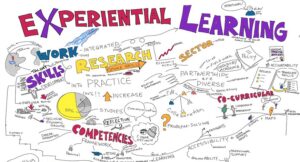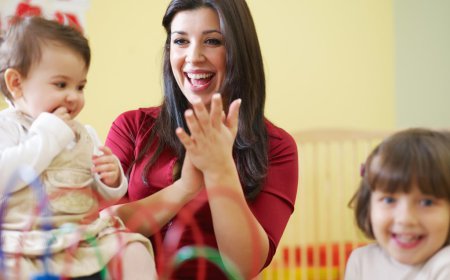Education is a dynamic process that extends beyond the confines of traditional classrooms. Experiential learning, also known as learning by doing, has emerged as a powerful approach to education that goes beyond textbooks and lectures. It offers students the opportunity to engage actively in the learning process, apply theoretical knowledge in real-world contexts, and develop essential skills for success in today's rapidly changing world. This article explores the significance of experiential learning, its benefits, and the transformative impact it has on students' education and personal growth.

1. Active Engagement and Practical Application
Experiential learning encourages active engagement and practical application of knowledge. It moves students from passive recipients of information to active participants in their own learning journey. By involving students in hands-on activities, simulations, field trips, and real-life projects, experiential learning enables them to apply theoretical concepts in practical settings. This active involvement enhances understanding, retention, and the development of critical thinking and problem-solving skills.
2. Developing Transferable Skills
Experiential learning goes beyond academic content and focuses on developing transferable skills that are essential for success in various domains. Through experiential learning, students enhance their communication, collaboration, leadership, and adaptability skills. They learn to work effectively in teams, navigate challenges, think creatively, and make informed decisions. These skills are highly valued in today's professional landscape and prepare students for the demands of the workforce.
3. Encouraging Personal and Social Growth
Experiential learning fosters personal and social growth by providing students with opportunities to explore their strengths, interests, and values. It helps them develop a sense of self-awareness, confidence, and a growth mindset. Through experiential learning, students also cultivate empathy, cultural sensitivity, and an understanding of diverse perspectives. They learn to collaborate with others, appreciate different viewpoints, and contribute positively to their communities.
4. Real-World Relevance
One of the key advantages of experiential learning is its real-world relevance. By connecting classroom learning to authentic, real-life situations, students understand the practical applications and implications of their knowledge. Learning bridges the gap between theory and practice, allowing students to see the direct impact of their learning on the world around them. This connection to real-world contexts enhances motivation, engagement, and a sense of purpose in students' educational journeys.
Read more:
Environmental Education: Inspiring the Next Generation of Eco-conscious Citizens
5. Encountering Challenges and Building Resilience
Experiential learning exposes students to challenges and uncertainties, providing valuable opportunities for growth and resilience. Through experiential activities, students encounter obstacles, make mistakes, and learn from them. They develop problem-solving skills, adaptability, and perseverance in the face of challenges. Education teaches students that failures are stepping stones to success and encourages them to embrace new experiences with courage and resilience.
6. Lifelong Learning and Personal Development
Experiential learning instills a love for lifelong learning and personal development. By engaging in hands-on experiences, students discover the joy of learning, curiosity, and a desire for continuous growth. Experiential learning encourages students to become self-directed learners, taking ownership of their education beyond formal schooling. It cultivates a passion for exploration, discovery, and lifelong intellectual development.
Conclusion
Experiential learning transcends the boundaries of traditional classrooms and empowers students to become active, engaged learners. By promoting active engagement, practical application of knowledge, transferable skill development, personal and social growth, real-world relevance, resilience-building, and a love for lifelong learning, learning prepares students for success in a rapidly evolving world. Let us embrace the transformative power of learning, encouraging educators and learners alike to venture beyond the classroom walls and embark on a journey of discovery, growth, and meaningful experiences.
Follows Us for More Updates
Like Us on Facebook Page :
Click Here
Like Us on Instagram :
Click Here 






























